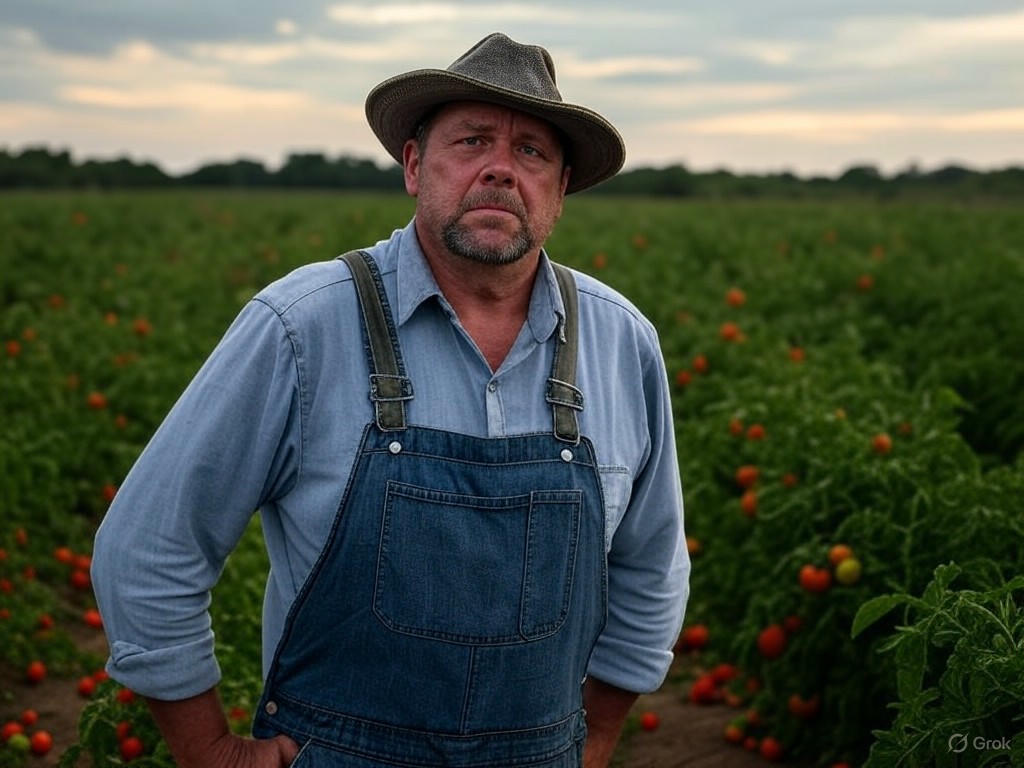Florida Tomato Farmers Face Crisis Amid Tariff Fallout and Market Shifts
Florida’s tomato fields, once a symbol of agricultural bounty, are now scenes of heartbreak as farmers plow over ripe, unsold crops. The state’s agricultural community is reeling from a perfect storm of economic challenges, largely attributed to recent tariff policies and fluctuating market dynamics. Under the current administration’s trade strategies, which echo former President Donald Trump’s aggressive tariff stance, the price of tomatoes has plummeted, leaving growers with little choice but to destroy their harvests rather than sell at a loss. This drastic measure underscores the dire situation facing one of Florida’s key industries.
The root of the issue lies in a combination of trade tariffs and an influx of cheaper imports flooding the U.S. market. Policies aimed at protecting domestic industries have, in some cases, backfired, creating an oversupply of foreign produce that undercuts local prices. Florida farmers, who rely heavily on the tomato crop for their livelihoods, report that wholesale prices have dropped to unsustainable levels, sometimes below the cost of production. Compounding the problem is the labor shortage exacerbated by stricter immigration policies and deportations, which have reduced the workforce available for harvesting. Many farmers are unable to afford the remaining labor costs, leading to unharvested fields and further financial strain.
Beyond the immediate economic impact, the destruction of perfectly good tomatoes raises ethical and environmental concerns. Tons of fresh produce are being discarded while food insecurity remains a pressing issue across the nation. Local charities and food banks, which could benefit from donations, often lack the infrastructure to quickly collect and distribute perishable goods on such a large scale. Meanwhile, the environmental toll of plowing over crops—wasted water, fertilizers, and energy—adds another layer of complexity to an already troubling situation. Farmers express frustration over the waste, with many feeling trapped between market forces and policy decisions beyond their control.
As the crisis unfolds, some Florida growers are exploring alternatives to mitigate their losses. A few are pivoting to other crops with more stable demand, though such transitions are costly and time-consuming. Others are advocating for government intervention, such as subsidies or revised trade agreements, to level the playing field against imported goods. Industry leaders warn that without swift action, the state’s tomato sector could face long-term decline, threatening not just farmers but the broader agricultural economy that supports rural communities.
The plight of Florida’s tomato farmers serves as a stark reminder of the interconnectedness of global trade, domestic policy, and local livelihoods. As crops are turned back into the soil, the ripple effects are felt far beyond the fields—touching consumers, workers, and policymakers alike. For now, the future of this iconic industry hangs in the balance, with farmers hoping for solutions that will allow them to sow seeds of recovery rather than despair.


